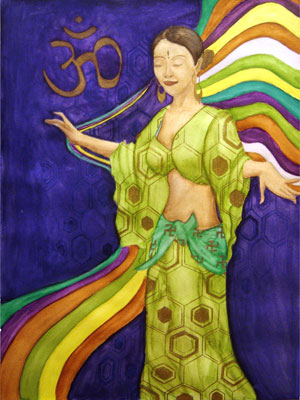All Nonfiction
- Bullying
- Books
- Academic
- Author Interviews
- Celebrity interviews
- College Articles
- College Essays
- Educator of the Year
- Heroes
- Interviews
- Memoir
- Personal Experience
- Sports
- Travel & Culture
All Opinions
- Bullying
- Current Events / Politics
- Discrimination
- Drugs / Alcohol / Smoking
- Entertainment / Celebrities
- Environment
- Love / Relationships
- Movies / Music / TV
- Pop Culture / Trends
- School / College
- Social Issues / Civics
- Spirituality / Religion
- Sports / Hobbies
All Hot Topics
- Bullying
- Community Service
- Environment
- Health
- Letters to the Editor
- Pride & Prejudice
- What Matters
- Back
Summer Guide
- Program Links
- Program Reviews
- Back
College Guide
- College Links
- College Reviews
- College Essays
- College Articles
- Back
Assimilation
As I quickly chomped on what was left of my lunch, the question came up, “Sammy, do you eat curry?” The sentence rang through my ears as if a bomb exploded next to me, and I lost my hearing. Suddenly, the dreadful words came out of my lips when I responded saying, “No, I think it’s gross.” A pitiful guilt rushed through my veins like I just committed a heinous crime. Gross. That one word was forever imprinted into my memory. Before I could think, I spoke. It certainly wasn’t true; I loved my grandmother’s curry and the way the orchestra of spices played on my tongue when I took a bite of it. So why did I say that?
Walking through the of halls my middle school, I, a 12-year-old, noticed the many cliques and factions of students conversing by their lockers. I knew that I was tired of being called a “nerd”, and I believed the best way to avoid that name was to steer clear of Asians and Indians. This hasty generalization put me in a position where the majority of students I could befriend were white.
Therefore, I started to assimilate to white culture to be noticed. I began to insult my own ethnicity by using stereotypes and misconceptions, and I refrained from watching Indian movies and listening to Indian songs. By behaving this way, I felt like I was distancing myself from being Indian and conforming to white standards. Of course, I knew that my skin was brown, but I liked to believe that was white on the inside. I thought it was who I was; I believed that I was a white boy trapped in the body of an Indian kid, and my ultimate goal was to break free of the cage that was my skin color. For about a year and a half, I continued this mindset until a sudden family emergency sent me on a 9,000-mile journey to India.
As I stepped out of the Bangalore airport and onto Indian soil, I was bombarded with the shrieks of car horns and an absurdly large number of people for an early morning arrival. After entering the scorching hot driveway, I was greeted by my relatives, some whom I’ve known and others whom I’ve only ever heard stories of. After climbing a few flights of stone stairs, the complementing aromas of cardamom, cumin, and turmeric signaled that lunch was soon to begin; I quickly scooped a few spoons of rice, chicken curry, and curd onto my plate as I was eager to devour the meal. Lunch consisted of laughs, a couple tears, and ample questions of life back home in America. That night, my cousin took my brothers and me to her school’s cultural function which I expected to be an uneventful couple of hours. The program kicked off with an energetic Bollywood dance that forced my feet to dance to the beat; I sat in my chair, suspending myself from joining the dancers on the stage. I missed this. I missed dancing along to Indian songs while alone in my room. I missed singing in the shower to the Telugu songs that I loved immensely. I missed watching Indian movies which are so predictable yet so entertaining.
I realized what I was doing for the past year and a half; I was whitewashing myself. I took my culture, beat it, and left it on the side of the road to wither just for the purpose of fitting in. During the beginning of my 8th-grade year, I stopped bottling up the fascinating culture that resided inside me. When I started to embrace it, I met a couple new friends that I bonded with over the different aspects of the Indian culture. From this experience, I learned that “A people without the knowledge of their past history, origin and culture is like a tree without roots.”-Marcus Garvey

Similar Articles
JOIN THE DISCUSSION
This article has 0 comments.
